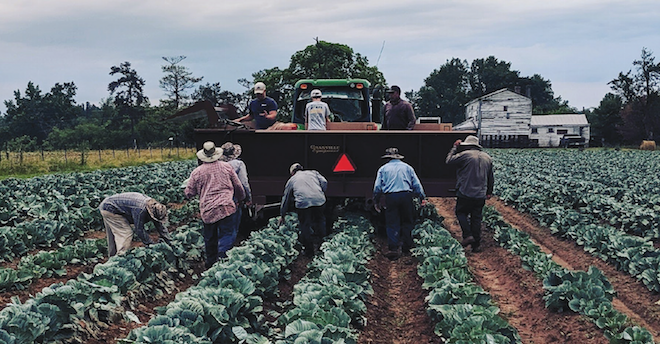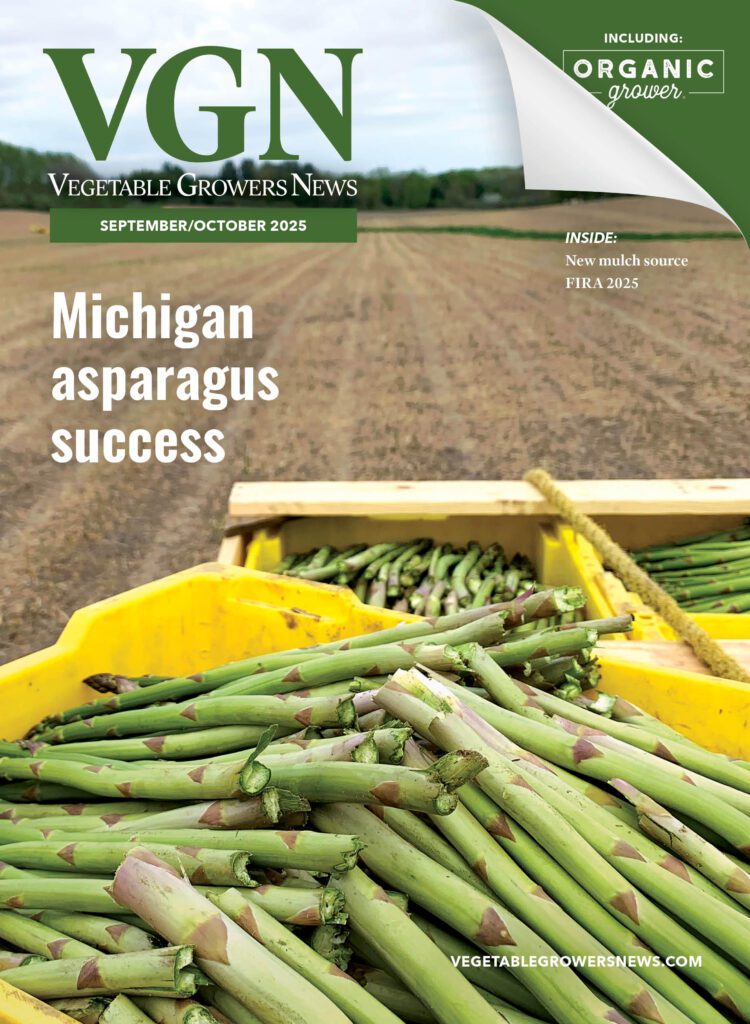
May 27, 2025Preparing for labor policy changes
For fruit and vegetable growers, the need for a dependable, timely workforce is nothing new. Labor has always been at the heart of agriculture, but in 2025, the challenges surrounding labor are growing more complex and more consequential.
Increased regulatory scrutiny, limited domestic availability, rising wage pressures and unpredictable policy shifts are creating new hurdles for even the most experienced producers. Now more than ever, understanding and adapting to these labor trends isn’t just important — it’s essential to staying competitive.
Shrinking domestic labor pool
Recent reports show what growers have known for years: Domestic workers are becoming harder to find and harder to keep. Surveys conducted across farming operations, particularly in labor-intensive crops like fruits and vegetables, reveal a steady decline in the availability of seasonal U.S. workers.
Demographic changes, declining interest in physically demanding work and increased competition from other industries have pushed many potential workers away from the field. What was once a labor shortage in isolated areas has now become a nationwide challenge.
For growers, that means longer hiring windows, higher turnover and more pressure to get crops in and out of the ground without delays. When margins are tight and timing is everything, the risk is real — and the cost of labor disruptions can be devastating.
“American workers have more opportunities and options than ever before, and fewer are choosing agricultural work,” Tom Bortnyk, másLabor’s general counsel and senior vice president, said. “So for many growers, the H-2A program is increasingly becoming the only reliable means of hiring workers for tough-to-fill seasonal jobs.”
Turning to the H-2A program
In light of these ongoing shortages, more growers are turning to the H-2A Temporary Agricultural Workers Program as a strategic solution. The program allows U.S. employers to fill critical seasonal roles with qualified foreign labor when domestic workers are unavailable — bridging the gap in a legal, structured and government-sanctioned way.
While H-2A isn’t new, its importance has grown exponentially. Over the past decade, participation in the program has more than tripled. It’s not hard to see why: When implemented correctly, H-2A can offer consistency, accountability and the ability to plan with confidence.
That said, the program isn’t without its complexities. Employers must meet strict requirements related to recruitment, wages, housing, transportation and compliance. And recent regulatory changes — from new wage methodologies to expanded enforcement — have made the process even more demanding.
Why planning is non-negotiable
One of the most common pitfalls we see is growers waiting too long to start the process. Still, that doesn’t mean it’s ever too late to get started. While the H-2A program is not designed for last-minute planning, first-time employers can conduct a 75-day emergency filing if needed. That being said, the best results come with planning ahead.
The No. 1 best practice is to secure housing first. Once housing is in place, you can move quickly to file your application and navigate filing deadlines, recruitment obligations and processing requirements. Early preparation also allows for consulate scheduling and contingency planning, which are especially important given the high volume of applications moving through the system.
Early planning also puts growers in a better position to respond to policy changes or backlogs that may affect their start dates. With the right support, navigating those changes becomes less burdensome and far more predictable.
Compliance isn’t just a box to check
H-2A is a powerful tool, but it comes with a high level of responsibility. The Department of Labor, Department of Homeland Security and state workforce agencies all play a role in enforcement, and violations can lead to penalties, disbarment and reputational harm.
That’s why compliance has to be more than just checking boxes. It means understanding your obligations not only on paper but also in practice — everything from worker housing to meal standards and payroll to post-departure recordkeeping.
Working with a knowledgeable partner can help identify risks before they become issues and build internal systems that support long-term success.

Taking care of your workforce
Compliance is critical, but so is care — thousands of employers have seen firsthand how investing in worker experience pays dividends.
Whether it’s safe housing, accessible transportation or cultural onboarding, growers who prioritize worker well-being tend to see higher morale, better retention and smoother seasons. In many cases, returning workers come back year after year, becoming trusted members of the operation and reducing the need to retrain new crews each season.
This is not just a best practice; it’s a smart business strategy.
Policy changes on the horizon
One thing is sure: Agricultural labor policy will continue to evolve. Whether it’s updates to wage structures, housing standards or broader immigration reform, the landscape is anything but static.
For employers, that means staying informed and agile. Growers need to remain connected to trusted industry associations, subscribe to regulatory updates and work with partners who monitor and interpret policy changes in real time.
Understanding what’s changing and how it affects your business is the first step toward staying ahead.
Your partner in workforce solutions
At másLabor, we don’t just process paperwork, we help growers build the workforce they need to succeed. As the nation’s largest provider of comprehensive H-2A and H-2B services, we’ve supported thousands of agricultural employers across the country through every phase of the program.
From initial consultation and document preparation to ongoing compliance support and transportation logistics, our experienced team walks alongside our clients to make the complex simple. We help growers think strategically — whether that’s planning for next season or building a more reliable labor pipeline for the future.
Labor uncertainty doesn’t have to mean business uncertainty. With másLabor, you get more than a service — you get a strategy. One that’s proven, powerful and built to keep your farm growing, season after season.
To learn how másLabor can support your operation, visit maslabor.com.
— Chris Ball, CEO, másLabor
















